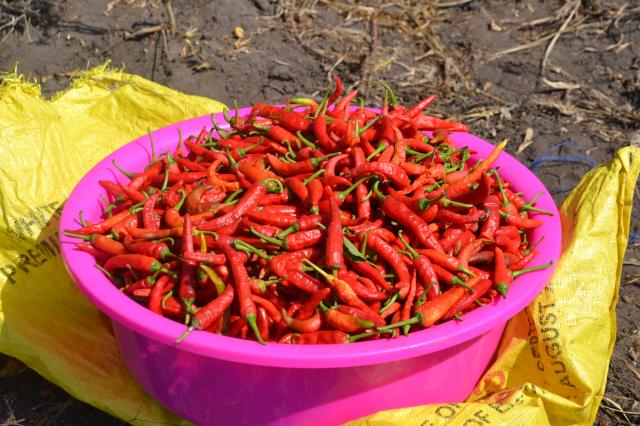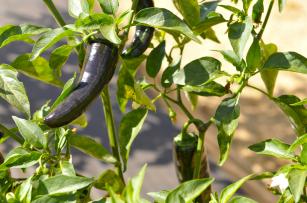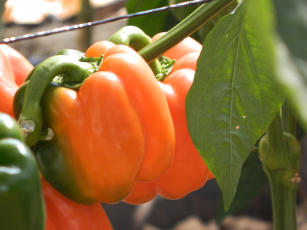Projects involving peppers and bell peppers are implemented in African countries
Projects involving peppers and bell peppers are implemented in African countries
Following up on the activities established by the projects "Promotion of the local seed production chain: breeding and distribution of bell pepper and pepper varieties by farmers" and "Improved means of subsistence of smallholder pepper producers through partnerships that aim at germplasm improvement and adaptation", which are being respectively implemented in Uganda and Togo: That was the mission of the researcher Cláudia Ribeiro, leader of both projects, and of the researchers Carlos Ragassi and Marçal Jorge during the trip to the two African countries from November 26 to December 12, 2016. The projects are part of the Africa-Brazil Agricultural Innovation Marketplace.
Idealized by Embrapa, the marketplaces are mechanisms that work towards funding projects aimed at development and innovation in agriculture, and at strengthening relations between the institutions of the countries involved. Following the example of Nigeria, which between 2012 and 2014 was the focus of a project involving actions related to the assessment and promotion of bell pepper and pepper cultivars, Togo and Uganda are also lined up in the same conjuncture - they are countries that commercially cultivate pepper, but that do not have seeds in the market.
"The situations differ with regard to the purpose of production, since Togo produces for domestic consumption while Uganda does it for exports, but the problems are similar, as we could identify during our stay", evaluates the researcher, who coordinates Embrapa Vegetables' Pepper (Capsicum) Breeding Program. She reports that the assessment tests included other materials, on top of those developed by the Capsicum Program. "The first stage saw the submission of 30 pepper cultivars and hybrids found in the Brazilian market, including cultivars developed by Embrapa Vegetables".
In that regard, Togo took the lead with respect to selection: the pepper cultivars Jalapeño M, BRS Mari, BRS Moema, and the commercial chili hybrid Jalapeño Plus and the bell pepper hybrid Maximus were selected. In addition to such results, the contact with the growers and the visits to crop areas led the researchers to identify the need to broaden the focus of the project, with the aim of improving the pepper production system in both countries, in topics such as production of high-quality seedlings, for instance. "It was clear that the breeding in itself does not solve all problems - we can even develop a variety with great production potential, but inadequate management would obliterate such trait", asserts the plant scientist Carlos Ragassi.
NEXT STAGES
A visit to Brazil, possibly in upcoming June, of Embrapa's interaction leaderships in Togo and Uganda, is among the activities described in the project, for training in pepper seed production. "In addition to working together to address the issue of viroses, which has caused problems in production in those countries, we are going to show the importance of counting on healthy seeds", declares Ragassi. He adds that besides such focus, there will be discussion on other possibilities for pepper cropping, such as value aggregation through processing to produce spreads and sauces, for example.
The schedule of visit of the African leaders in Brazil also includes a visit to the Taquara Agricultural Cooperative (Cootaquara), "where we are going to address the importance of the organization of the production chains and to show the positive points of the experience jointly with the members of the cooperative".
Translation: Mariana de Lima Medeiros
Anelise Macedo (MTB 2.748/DF)
Embrapa Vegetables
Press inquiries
hortalicas.imprensa@embrapa.br
Phone number: +55 61 3385-9109
Further information on the topic
Citizen Attention Service (SAC)
www.embrapa.br/contact-us/sac/



